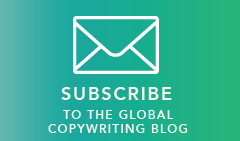In a former career, I travelled the world as an international representative for a multi-national software company. I had a big quota and the expense account to match it. A lot was expected of me and, in return, I stayed in the best hotels, ate at the best restaurants and worked with some of the best people in the world. It was a luxurious backdrop to a gruelling job.

Today I dipped my toe back into that life with a cross-country business trip to Sydney, a city I haven’t visited since 1995. I’m an Australian resident now, but flying across the country sort of feels like an international journey. I was surprised at how easily it all came back: packing business clothes, flying alone, grabbing a taxi from the airport, and checking into an upmarket hotel designed for business travellers.
Changing Times
It all felt familiar until I got to my room and was greeted by a postcard on the bed. Printed on recycled paper, it told me if I wanted my sheets changed, the onus was on me to ask for the service. Couched in reasonable language, the note explained:
Together we can save millions of litres of water.
No matter where you stand on the environment, I had to marvel at this. I’m paying several hundred dollars a night for this hotel room. One of the tacit agreements about staying in a hotel described as providing “extraordinary escapes” is the extraordinary experience of having clean linens provided to you every day. While it’s not something I expect at home, at a budget hotel or in a hostel, I do expect it from a premier establishment. Why?
- Nowhere on their website, in their booking process or at check-in was I made aware of an environmental campaign.
- They’re asking me, their customer, to serve them.
- The rates they’re charging merit excessive benefit.
- The only recycled paper in the entire room was the postcard asking me to avoid clean sheets every day.
Duplicitous Message
Here’s what really bugged me. The postcard was written to make me feel like a bad person if I didn’t support this water-saving cause. While emotional appeal is the hallmark of a good marketing campaign, the reason this chafed is because they’re asking me to expect less from them to advance their own agenda. In no other way does this establishment appear to have an ecological concern. I can’t help but feel the real savings here is on operational and staffing costs for the hotel.
The Takeaway
Before you embark on an emotional appeal to your customers and prospects, ensure your message is supported by the organisational culture. I have no qualms with saving water and protecting the environment. But when I see massive amounts of fossil fuel being wasted in other parts of the hotel, the request seems out of place and self-serving.
When did you suspect a marketing ploy?
Related posts:
- BRIEF: How One Wrong Word Can Ruin Your Message[*]CSR: So What?[*]Can CSR and Marketing Coexist? I think so!
*image courtesy of Ralph Hockens at www.flickr.net


Recent Comments